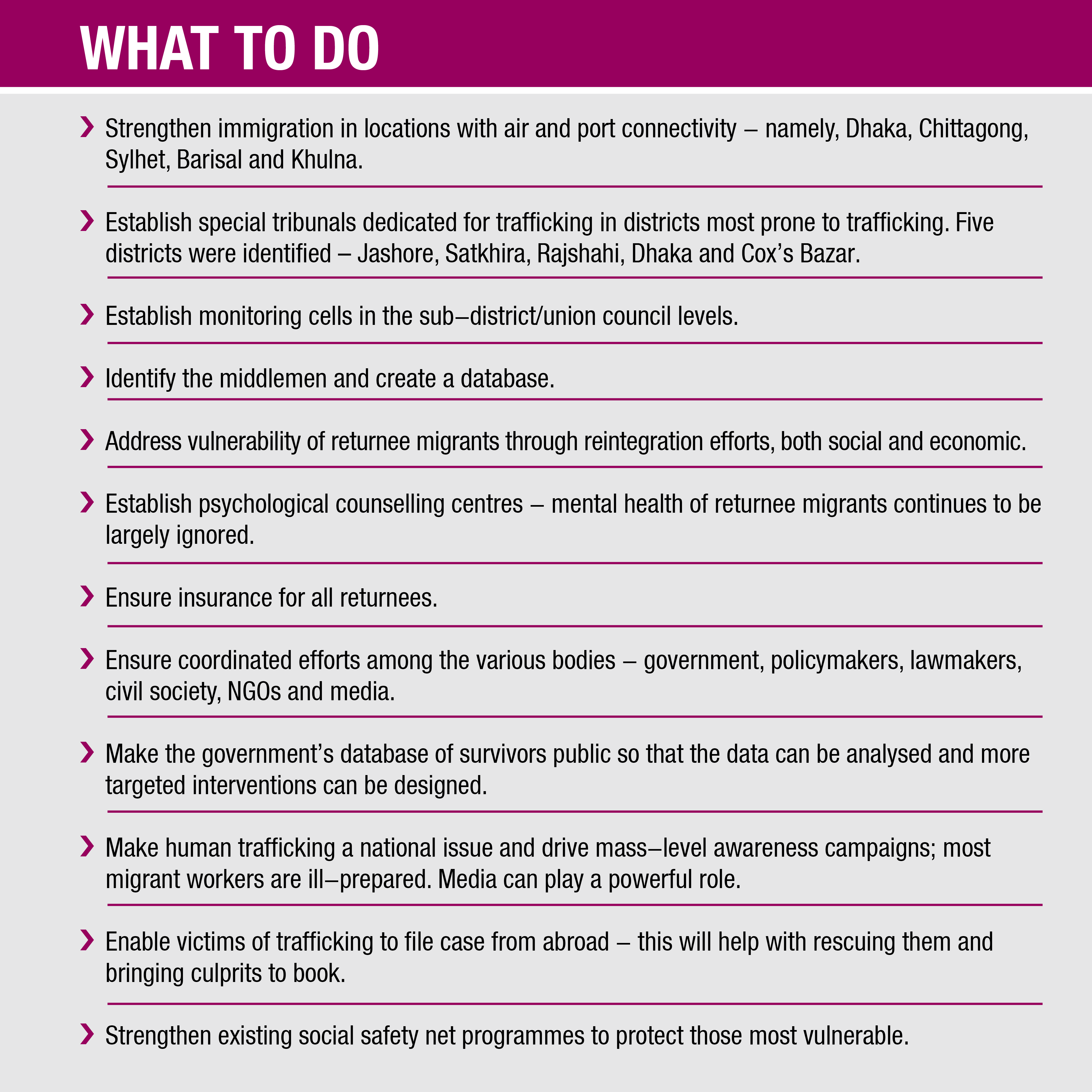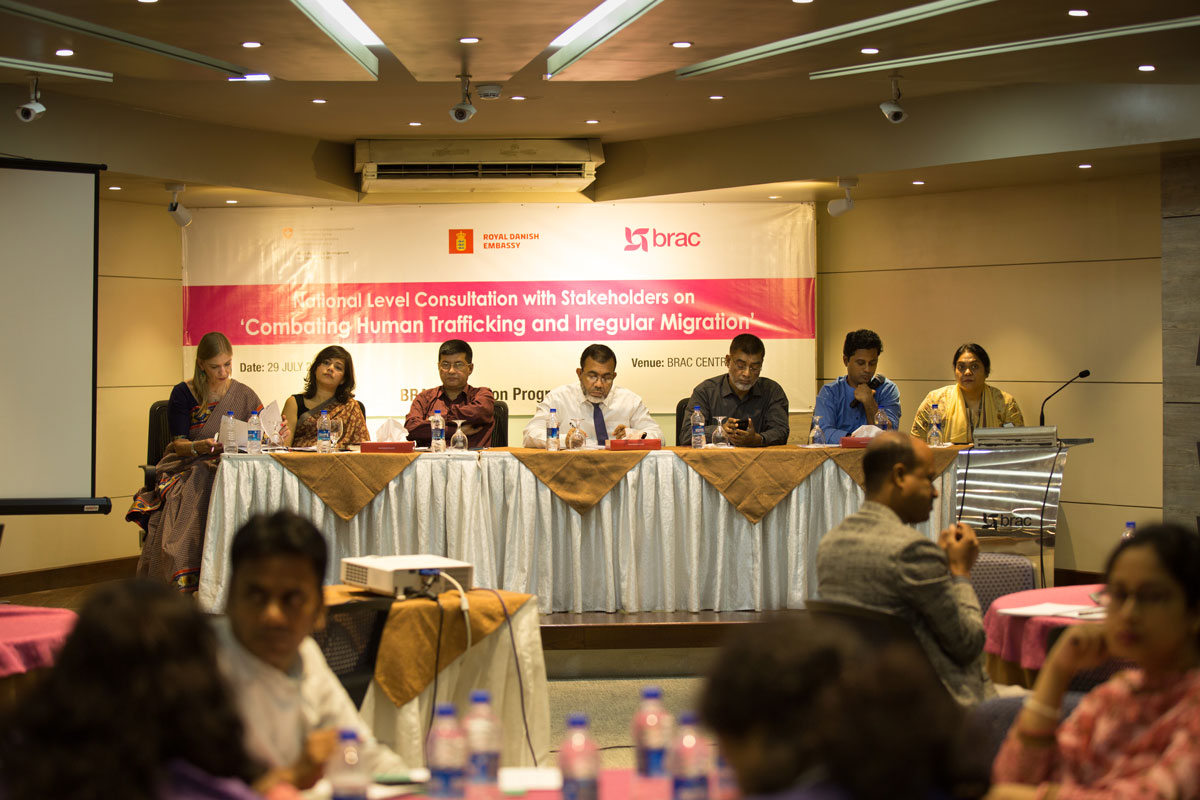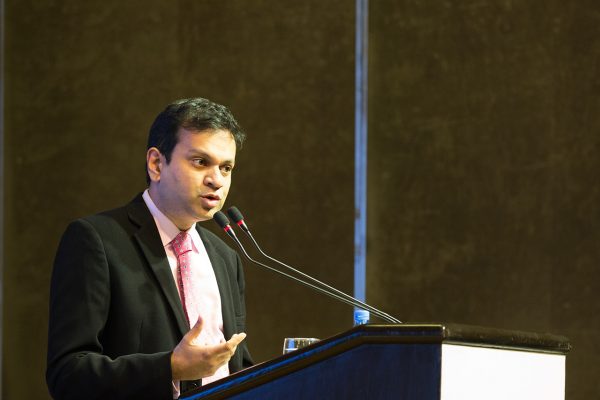Combatting the world’s fastest growing crime
Reading Time: 3 minutes
Bangladesh is the fifth highest labour sending country in the world, but it is also among the top 10 countries from where people migrate across the Mediterranean Sea on boats. The country earns USD 15 billion a year in remittance, but that is a success story that comes at a high price.
Shahinur* was left destitute when her husband was injured in a car accident. A recruiting agency offered her a stable job in Libya and she accepted. Shahinur found herself in Syria, instead of Libya, in a brothel, instead of an office. She was raped, beaten and tortured, for months. Like the majority of women migrant workers from Bangladesh seeking a better life, Shahinur was trafficked into sex work.
Bangladesh is the fifth highest labour sending country in the world, but it is also among the top 10 countries from where people migrate across the Mediterranean Sea on boats. The country earns USD 15 billion a year in remittance, but that is a success story that comes at a high price.
We live in a world constantly on the move. Every seventh person is a migrant, and it is migrant workers who are most vulnerable to trafficking. Many end up being part of a multi-billion dollar business that indiscriminately exploits people of all ages and genders. Human trafficking is now one of the fastest growing transnational crimes.
Trafficking, safe migration and human rights is a major focus of BRAC. We work with people before they leave, support them while they are away and help them to reintegrate upon return. But to truly win the fight against human trafficking, we must collaborate – and every stakeholder – government, activists, lawmakers, law enforcement, non-government organisations and civil society – must step up.
Each hour 84 people migrate for work, and almost 11 million Bangladeshis currently work abroad. In 2007, a record almost 1 million people migrated for work. There is no information on how many of these people were trafficked, but approximately 4,668 cases have been filed from January-March 2019 alone. Of those, 4,106 are still under trial. 245 have been resolved.
The theme of World Day Against Trafficking In Persons this year is calling governments to action. To mark the day, BRAC brought representatives from the government, diplomatic missions, media and civil society in a national consultation to discuss the way forward.
Key recommendations arising from the consultation include:

Dialogue among stakeholders not only promotes accountability but also helps to identify gaps in existing frameworks. The need for combined and coordinated efforts was reiterated by all the speakers at the consultation. For example, when Md Abu Bakar Siddiqui, additional secretary at the Ministry of Home Affairs, talked about the government’s effort to build a database of survivors, attendees also raised the need for a database of traffickers – and then Asif Saleh, executive director of BRAC Bangladesh, urged the secretary to make databases accessible so that informed and targeted interventions can be designed.

Panelists from various organisations and bodies engage at a national consultation on human trafficking.
Stepping up and ensuring stronger collaboration to stop trafficking comes at a crucial time as Bangladesh just placed in the Tier 2 Watch List for the third consecutive year (US State Department Trafficking in Persons Report 2019). And with nearly a million people living in densely-packed camps in Cox’s Bazar, the threat of trafficking has never been higher.
We read stories like Shahinur’s every day, and each of them sounds more horrific than the next, but ending trafficking is possible, we just need to work harder and combine our efforts. The billions of dollars received in remittances every day demonstrate that it is worth investing in ensuring migration is safe for all.
*Name has been changed to preserve identity.
Shariful Hasan is a former senior reporter of Prothom Alo and the current programme head of BRAC’s migration programme. Sameeha Suraiya is a content strategist at BRAC Communications. Sarah-Jane Saltmarsh is the head of programme and enterprise communications, BRAC Communications.





